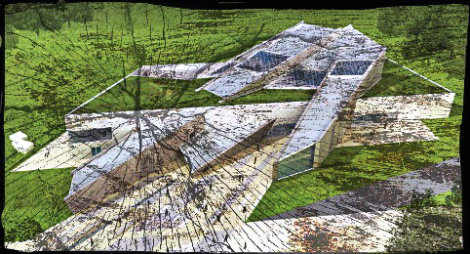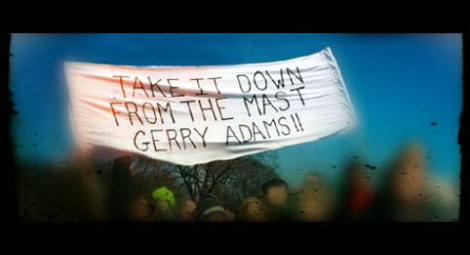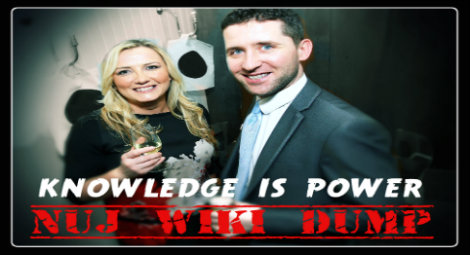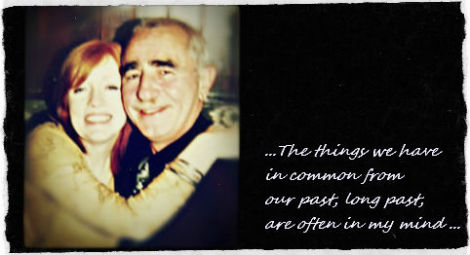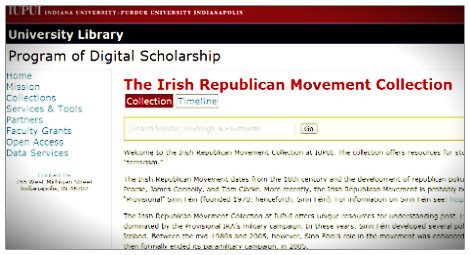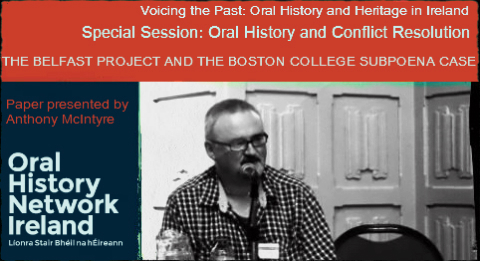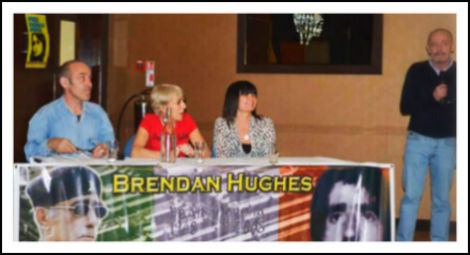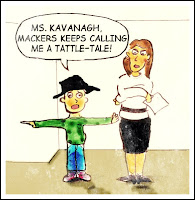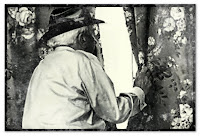John L Murphy with a review of a work on Karl Marx that initially featured on Blogtrotter on 3rd November 2012.
 |
This leads to the theme of Jonathan Sperber's biography. Rather than promoting a spokesman for our times, he argues that Marx's ideas have run their course. More a product of the French Revolution and Hegel, early English industrialization and political economies of the emerging modern age, than an avant-garde inspiration, Marx "is more usefully understood as a backward-looking figure," who from his own century's first half took the facts "and projected them into the future."
As a professor of history at the University of Missouri, Sperber aims this work at a general audience. I welcomed this approach. I'd been searching after Eagleton's lively if rapid apologia for a popular, if more in-depth, entry to Marx's work within the perspective of "a nineteenth-century life" and its times.
He draws upon the MEGA edition of Marx and Frederick Engels' writings--a project inherited from the Soviets by the newly unified German nation--which includes correspondence of all sorts (notes scribbled on envelopes) and letters addressed to the pair as well as from them. He widens contexts beyond the usual political and economic texts into more idiosyncratic works. He opens up Marx's public and private complexities to show him as an intellectual and an activist, not always in the most flattering light. His ties within the underground of the time blends with interactions with prominent men such as a lord, king, emperor, and chancellor--as well as David Ricardo and Charles Darwin.
Sperber follows today's scholars who downplay the singular impact of the industrial revolution. They prefer to integrate the French Revolution, religious ideas, nationalism, and family life and gender relations as widening the perspective established by Marx and Engels in their own historical moment. Capitalism has changed: it's not the bourgeoisie but global forces, so translations need updating. Sperber does not support projecting later formulations back on Marx, nor does he try (as religious reformers attempt) to purge an ideology of accretions to rouse a purified founding figure's mission. He emphasizes our distance from Marx's era, not (as in 1989 or 2011) a few "moments of familiarity."
Beginning in Trier, a Rhineland Catholic pilgrimage center, Sperber charts the forward path of Marx's father Heinrich, who worked first under Napoleonic forces, then for their Prussian conquerors. He converted from Judaism to Protestantism to leave behind the subordination of his people, in a "society of orders" under autocracy. He advanced his legal career, and to further his own beliefs in rational Enlightenment values. Within this context, in 1818, one of his nine children (within eleven years to Henriette, of Dutch Jewish stock) inherited his ambitions and drive. Karl added irascibility.
Karl's first rebellion, Sperber shows, came before his heady exposure to Hegelian theology or atheist philosophy as a law student. He became engaged to Jenny von Westphalen, four years older: this was sufficient radicalism to outrage Heinrich. Karl's doctorate on Epicurus demonstrated his classical education, while his enthusiasm for the biblical Higher Criticism foreshadowed his confidence in a human transcendence, based not on divine revelations but scholarly analyses and robust exegeses.
Sperber packs a lot into this hefty volume, ensuring that we can follow the rivalries, theories, and upheavals which caused Marx to move back and forth, not always by choice, from Cologne to Paris, Brussels and then to spend the last half of his life in London exile. Marx's involvement--more by goading than participating in the insurrections of the later 1840s as radical ideas sparked populist fury against Prussian and French rule--led to the pamphlets and books which gradually evolved his concept of an Hegelian framework not dependent on appeals to reform by elevated idealism, but a reliance on the working class. Sperber demonstrates how the proletariat was more an invention of Marx for the dialectic materialism he concocted than an actual milieu among which he moved at ease.
For, his journalism in Germany and then France and Belgium--as he was hounded as a subversive--tended to be crammed so full of erudition that the laborers it meant to direct found it too heady to figure out. Funded at one desperate time by Cologne capitalists when he had to decamp for Paris (one of three times), Marx cultivated carefully his allies who'd support him and his growing family as his journalism failed and he lacked steady work otherwise. But he thrived on alienating his comrades.
Even as he crafted his vision of a future when communism would bring about amity, the necessary war and class revolution before that attenuated age of peace seemed to reify in his backbiting and putdowns. He liked to put into the mouths of his often equally radical if insufficiently enlightened foes anti-communist critiques. He had no scruple about deploying anti-semitic jibes against his opponents of the same Jewish background he renounced. He managed self-criticism of his earlier, more compromising positions by attributing them to his enemies--of which he made many, goading him on the move, still unsettled. His letters display a dominance by ideology, via petty score-settling.
One of many intellectual refugees who would be cast adrift from Central Europe in the wake of 1848 and the crackdown after the Manifesto he and Friedrich Engels conspired to issue would emerge, Marx found in London's comparative isolation a safer asylum, if even more destitute until Engels agreed to manage his family's textile mill in Manchester to pay the bills for Marx and Jenny and children. Engels also aided Marx when he (Sperber agrees this happened as far as we can surmise) fathered a child by his maid--Engels took the claim of paternity to save Marx's marriage in a situation which despite archival searching remains understandably obscure. Three of his children in Soho by Jenny died, including a beloved son at the age of eight. When Marx returned from his 9-to-7 stint in the British Library's Reading Room, one acquaintance noted how he'd be met by not Marx's compliments but economic categories. Marx lived in close quarters with his growing family, but his mind, as can be followed, sought comfort in dense calculations gleaned from relentless theorizing.
During the 1850s, as repression returned and reactionaries regrouped, Marx's expectation that the masses would seize control ebbed. Sperber opines: 'At least temporarily unable to change the world, as he aspired to do in his theses by Feuerbach, he had to settle for interpreting it.' His financial worries and his separation from Continental contacts impelled him to return to freelance journalism. Much of this was for editor Horace Greeley's New York Tribune, nearly 500 pieces--if a quarter of the total ghosted by Engels when Marx ailed. He continued to trade in irony and satire as he covered the Crimean War as well as European politics and parliamentary debates in his adopted city. His domestic debts eased, enough for him to move to an unfinished suburb, but his isolation from the German community increased. Engels had to step in to bail out the family once more. (They kept not only at least one maid but a governess no matter their income, typical of their genteel status if not cash flow.)
The author reminds us that Marx had in the late 1840s called for a unified Germany to fight tsarist Russia. The 1853-56 Crimean War generated his enthusiasm: he anticipated an insurgency across the Continent to better that of the French in 1789. He hated capitalist hypocrites. Britain would not back a total war, so Marx railed, unlike his followers, against the "Peacemongering Bourgeoisie." As intriguing, Marx in his coverage of British India balanced condemnation of imperalism per se with an acknowledgement of the world markets colonization introduced. Marx followed Victorian social scientists who judged the East as static and despotic; the West for all its woes forced progress. Of course, in his model, this historical process led to global uprising--under a Eurocentric vanguard.
The coming socialist revolution, he and Engels assumed, would burst out of their own Continent. Or, he hoped, the first world-wide recession, starting in America in 1857. His activism renewed, Marx resumed vigorous agitation and journalistic investigation of tumult in Italy, Austria, America, and Germany, culminating in the Paris Commune and then the Franco-Prussian conflict of 1870-71.
However, continuing troubles over finances, health, and worry distracted Marx and scattered his concentration over the two decades after his flight to London. So, Engels had to assist with the massive Capital as a demonstration of Marx's culminating synthesis. As Sperber sees it, Capital builds upon Hegelian structures applied to economics, and, partially, positivist and Darwinian theories linked to David Ricardo's readings of Adam Smith's capitalism. These connections, Sperber concludes, keep Capital within a 19th-century framework, looking less forward but more back, to 1800-50 for political and economic grounding. While later labor socialists took up the countercultural aspects of Marx, the marginal utility economists emerged, late in Marx's career, to push ahead past him. Therefore, his great attempt to tie scientific and materialist structures to economy remains historically much more a part of Marx's formative years than he and his followers might have wished.
His last years forced Marx--wearied by financial worries, family stress, the deaths of Jenny and one of his three surviving children (all daughters), and failing health--to recognize that the revolution would not happen soon. He continued to rely upon Engels for bailouts. He opposed whomever called for gradual reform. He demanded among the fractious and finally failing First International that his comrades adhere to violent overthrow as a prerequisite. While his theories altered over the decades, his opposition to the Prussian and Russian regimes remained perhaps his unchanging orientation. This directed his Central and Eastern European followers, under Engels' interpretations (he survived his partner by enough years to matter, when it came to editing Capital and establishing Marx in a particularly defiant stance), into the Second International. Finally, as a German, Marx continued his defiance of the occupying and surrounding powers. Given his hatred of the tsar, he advised late in life Russian dissidents struggling to apply Marx's model to what would become the Third International.
In his 1883 obituaries, three identifiers persisted: Marx was a scientist applying positivist principles to a materialist basis for social transformation, class war, and economic upheaval to usher in a proletariat harmony ruling over a changed earth. Sperber diminishes this perspective by reminding us of the ambivalent and only partially favorable ways in which Marx viewed positivism. Next, the "Jewish folk hero" concept tagged Marx and won over many adherents in Russia and Europe, if as disenchanted with Judaism as Heinrich and his family. Sperber reckons how, negatively or positively, the identification of the baby baptized a Lutheran with the people his parents rejected continued to tag Marx as Jewish. Marx appears from the letters more culturally Jewish now and then, if not much. Given his public aspersions against Judaism, his private reactions, if sometimes slightly nuanced, do not change the overall position that he wished Jews, as with any other religious group, to assimilate.
The most persistent label, of an "intransigent revolutionary," endured. Engels popularized this stance in his partner over the dozen years he survived Marx. This ensured that Bolsheviks and German insurgents would perpetuate it into the twentieth century's appropriations of Marxism's founding icon. This icon, moreover, perpetuated itself as a giant bust, a monolith similar to the graven image that replaced a humbler stone to memorialize him and Jenny at their plot in London's Highgate cemetery. For Sperber, this fossilized Marx and limited his direction: to look back to 1789. What now proves arguably a telling coda is that the British Communist Party that had erected the monument did so in the year of Hungarian repression by Stalin's forces, 1956, and that the Party in Britain now is defunct. (To be published by Liveright-W.W. Norton, 3-13-13) Publisher's website













